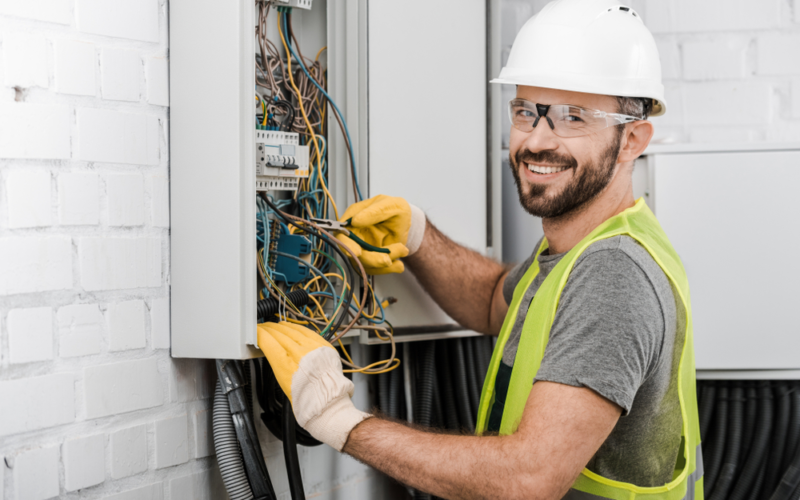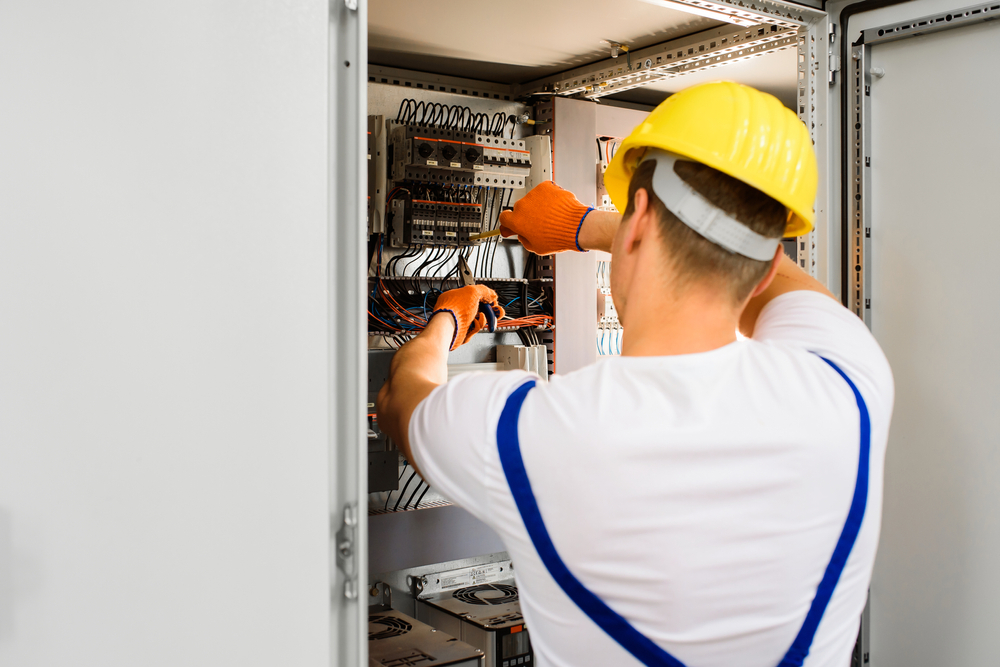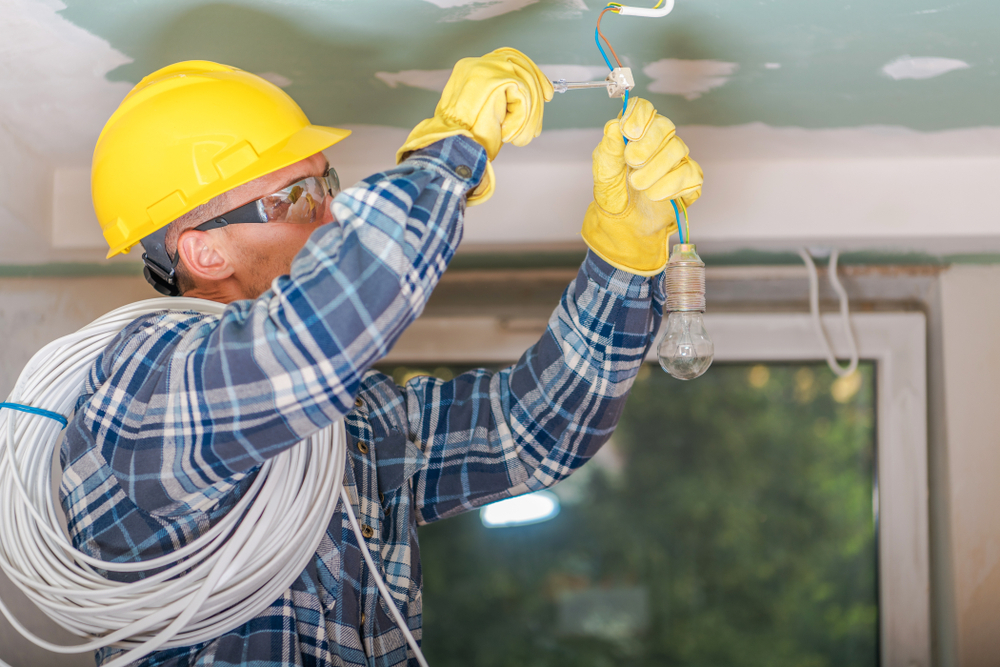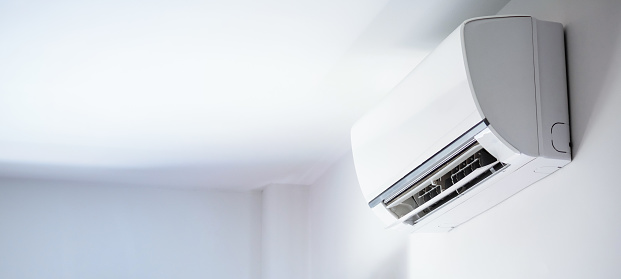
Let’s say you meet with an accident and bust yourself up pretty bad. What would be the logical thing to do? See a doctor, do not attempt to treat yourself with DIY tutorials from WikiHow or YouTube. Similarly, when your electricity is not working as it should, a licensed electrician should be your first recourse, not your last resort. In Australia, between July 2014 and June 2016, 1,065 people were hospitalised for electrical injuries, with 55 succumbing. Tinkering with electrical systems in your home or business can aggravate the fault. Not only that, but you might also endanger lives—yours and others’.
Let’s take a look at why licensed electricians are the right (and the only) people you should count on in the event of electrical issues.
Benefits of Engaging a Licensed Electrician

Safety Assurance
DIY failures are nothing to cry about if the project is a watercolour painting or needlepoint embroidery; electricity is a different ball game because it comes with safety risks. A licensed electrician has the prudence to handle electrical systems while wearing personal protective equipment, keeping the work area neat, using appropriate tools in working condition, and moving or lifting heavy equipment so they do not hurt themselves or others.
Avoiding Costly Mistakes
Mistakes are great opportunities to learn, but electrical mistakes are a genre of their own. Let’s say you incorrectly wire a circuit or misplace electrical components. The outcomes range from electrical shorts and equipment damage to fire hazards. The cost of hiring professional electricians to do the job is far less than the expenses you will have to bear for repairs and replacements resulting from indiscretions and damage to life and property.
Code-Compliant Installations
Did you know that there are standards for installing a power point? That’s right. Electrical work should meet certain benchmarks in order to qualify as safe and high-quality. These benchmarks are laid out in AS/NZS documents. These standards are neither available nor intelligible to everybody, but licensed electricians know them like the back of their hands. For example, you have:
- AS/NZS 3000:2018 — Electrical installations
- AS/NZS 3112:2017 — Plugs, socket outlets, and appliance couplers
- AS/NZS 3003:2018 — Patient areas of hospitals, dental clinics, and dialysing locations
- AS/NZS 3017:2007 — Periodic inspection of electrical installations
- AS/NZS 3019:2022 — Energy efficiency of electrical installations
They are also familiar with
- Building Code of Australia
- National Construction Code
- Governmental energy rebates
Insurance Coverage Protection
The dangers of working with electricity are manifold. Life, limbs, buildings, and valuables are at stake if something goes wrong due to malfunctioning equipment or negligence. Responsible electrical contractors have Public Liability Insurance covering property damages and accidental injury or death.
Long-Term Electrical System Reliability
Licensed electricians do not have a myopic, one-dimensional view of an electrical problem. Their training allows them to thoroughly assess the issue and make accurate diagnoses, something an unqualified person cannot do.
Consider this- an inexperienced person may try to fix flickering lights by simply tightening a loose bulb or changing it. They will then dust their hands and give themselves a pat on the back, assuming the problem is resolved.
The electrician’s far-sightedness goes beyond addressing the immediate symptom to ensure the entire electrical system is up to the mark. Their solutions are designed to be effective in the long term, not quick and temporary. Recurrent problems are recurrent headaches, and a professional electrician will keep both at bay.
Who is a Licensed Electrician in Australia?
To practise as an electrician in Australia, a person should meet some nationally recognised requirements, including:
- Certificate III in Electrotechnology Electrician. This is a four-year apprenticeship that includes on-the-job and off-the-job training.
- Licensed Electricians Assessment (LEA).This is a written and practical examination that tests the candidate’s knowledge and skills in electrical safety and installation.
The type of licence an electrician possesses determines the scope and nature of their work:
- Provisional electrician licence.This is a lower-level licence that allows a person to work under the supervision of a licensed electrician.
- A-grade electrician licence.This is the highest level of license that allows an electrician to work independently.
- Specialist electrician licence. This licence allows an electrician to work in a specific area of electrical work, such as telecommunications or industrial electrical work.
Conclusion
If you think just about anyone can settle your electrical issues, you are in for a rude shock. Even if you need a ceiling fan installed or a lightbulb replaced, a professional electrician should be the first person you dial. There is nothing better than enjoying the peace of mind and satisfaction of a conscientious and legal job backed by rigorous education, a nationally valid licence, and edifying experience. Personal and third-party harm come with hefty consequences for unlicensed individuals who attempt electrical work. Save yourself the hassle and hire an electrician for your home, business, or strata today because the benefits outweigh the costs.






